JUSTIN LANGER: My trip to the slums of Mumbai opened my eyes to what really matters in life
JUSTIN LANGER: After a life of living what I would now define as extreme luxury, I was humbled like never before seeing how other human beings live their day-to-day lives.
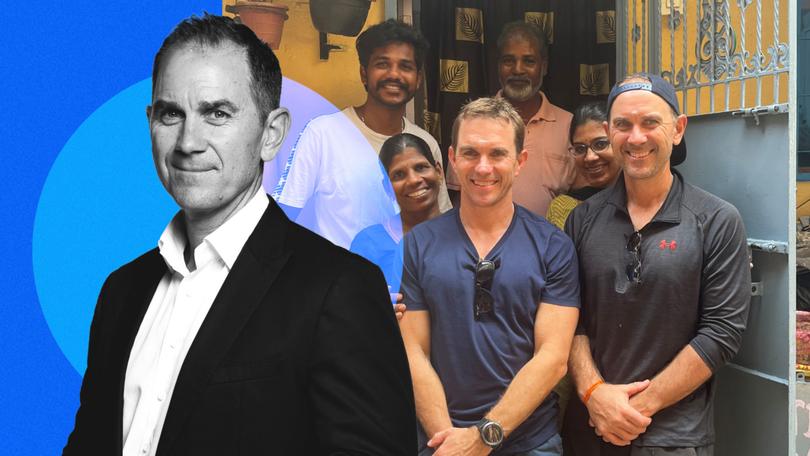
The moment I laid eyes on Rajesh Chandrashekhar (RC), I knew there was something special about the man.
Beaming smile, crop of long black hair, two gold earrings and an infectious energy that grew on me by the day.
To me, he looked like a movie star, but he prefers to think he looks more like a gangster.
Sign up to The Nightly's newsletters.
Get the first look at the digital newspaper, curated daily stories and breaking headlines delivered to your inbox.
By continuing you agree to our Terms and Privacy Policy.When I asked him what his role was with our team, the Lucknow Super Giants in the Indian Premier League, he told me with a serious expression that he was one of the team’s massage therapists.
He then started giggling and said: “But if you ever want a haircut, I can do that for you as well. Haircut, head massage, I will do for you. Just ask and I will be there. Any time, any place. Anything you need, I will fix for you.”
At first, I thought nothing of the invitation, but as the days moved into weeks, RC kept asking me if I needed a haircut.
Eventually, I relented to his offer and within minutes he was knocking on my door, manned with clippers, scissors, and a spray bottle full of water.
Again, his smile had been replaced by a very serious look.
RC was on a mission to impress the new coach and show me how good a hairdresser he was. As he started snipping away, we got talking, and I asked him how he had become a masseur and hairdresser for an IP League cricket team.
His story blew me away.
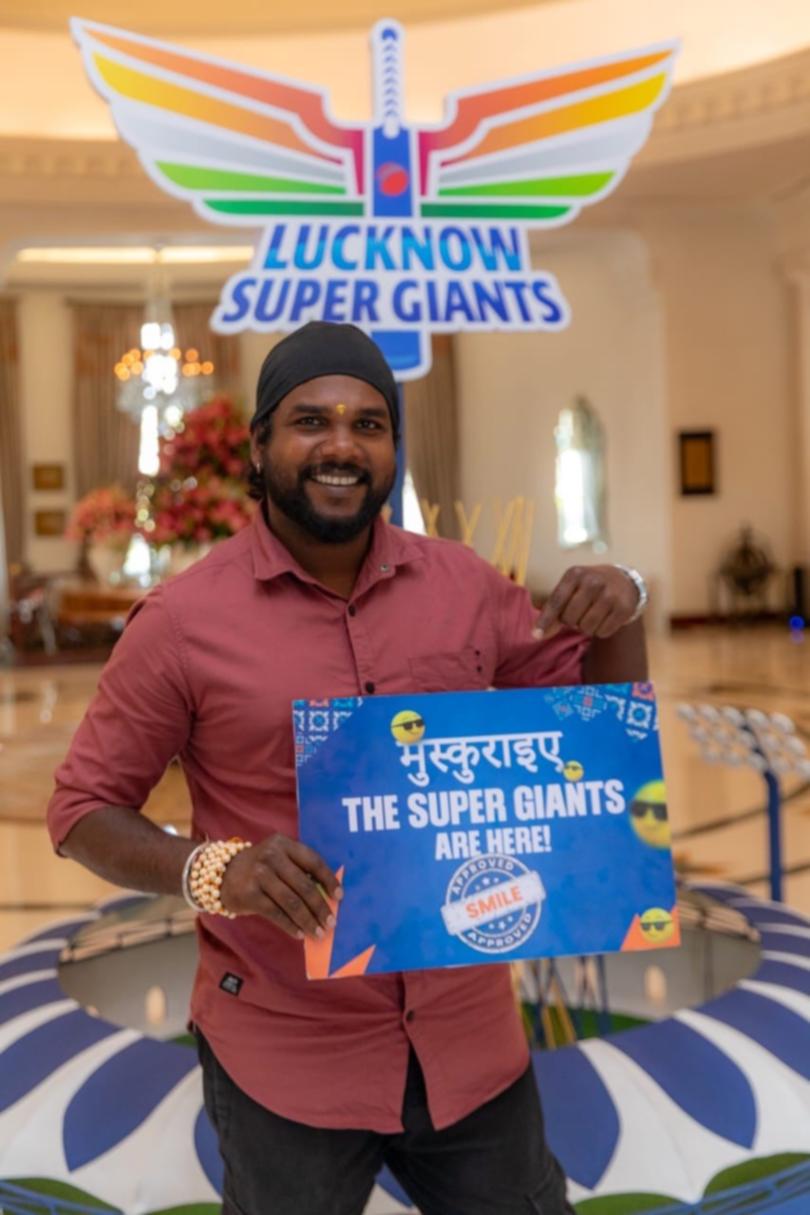
RC told me that he lived in the slums of Mumbai and that he had earned a lucky break as a masseur for the local football (soccer) team. From there one thing led to another and that is how our paths now crossed.
“Slums?”, I asked.
“Yes, my family and I live in the slum area of Mumbai,” he said. “Always have, always will.”
After telling me about his family history, I asked him what it was like to live in the “slums”.
“Well,”, he said. “My house is about the same size as this bathroom, and I live there with my Mum, Dad, brother, sister, and my sister’s new husband.
“My Dad paints houses in the slums when he can, my mum works as a helper, washing and cleaning in one of the local homes, and my brother works in the local salon as a hairdresser as well.
“When I am not doing this, we work in the salon together, or I do massages in our community when I am asked.”
The bathroom in this luxury hotel we were staying in was nice, but as I looked around, it was about the size of my laundry here in Perth.
It was therefore incomprehensible what he was describing to me. Feigning shock, I delved a little deeper but figured RC’s limited English must have confused me with the reality of his story.
Eight weeks after our conversation, and on my last day in India last Friday, we were playing the Mumbai Indians in Mumbai.
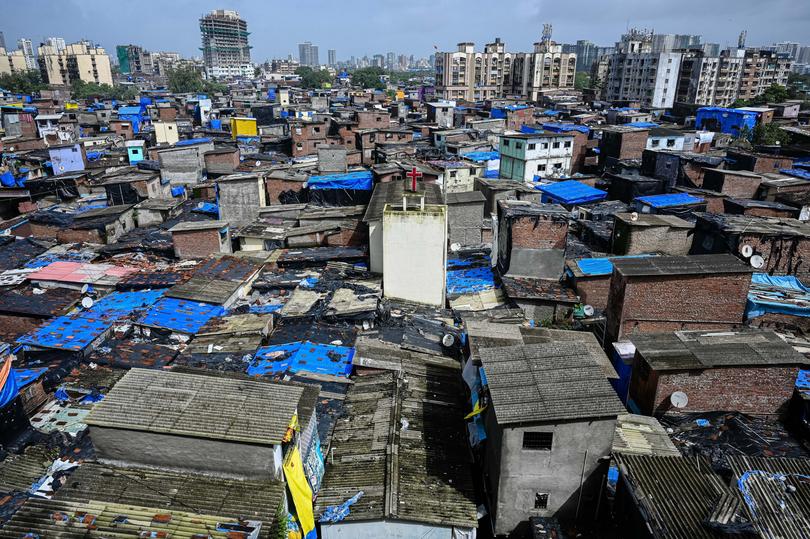
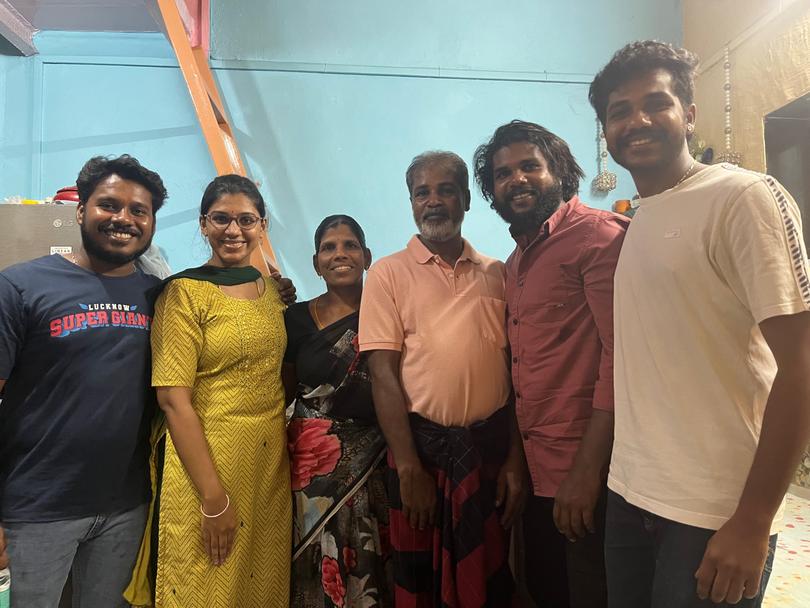
The day before, I asked RC if he would take me to meet his family at his home.
“You want to visit my home?” he asked with a surprised look on his face.
“Is that OK?” I replied. “And do you mind if I bring my brother with me to meet your family?”
My brother was in India watching the last two games of the IPL, and he was as fascinated as I was as to see a world which is so removed from our reality that we would have to see it to believe it.
The next morning, we battled our way through bumper-to-bumper traffic, and 45 minutes later turned off onto side roads that were home to cows, debris, people, noise, smells and mayhem.
These were all synonymous with India outside the luxury hotels we had become accustomed to staying in, but they were still eye-opening every time.
When we jumped out of the car, we were greeted by RC’s brother and friends, who were excited at the prospect of showing off their house.
We were guided through tiny alleyways, like a maze of very narrow passageways between concrete houses. And like most mazes, it became instantly apparent that it would be very easy to get lost in this hidden community.
Each lane was narrow, just wide enough for two people to pass. The alleyways were dark because just above us were the overhangs of buildings and tangled power lines.
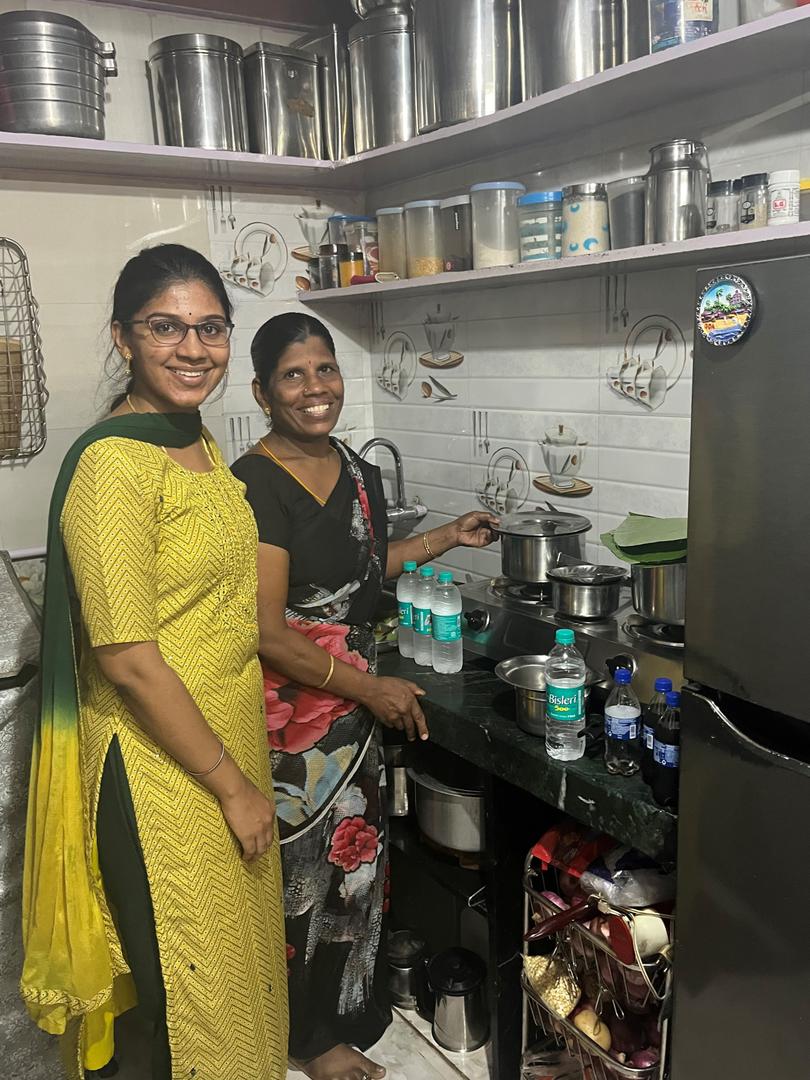
Men worked on their sewing machines, or tools, in tiny, dusty, open-doored rooms.
Every few metres there were small doors leading into houses, which we in Australia would more likely describe as single rooms.
Children with curious looks at the two of us foreigners were smiling and happy and having a great time.
Eventually, they were thrilled to see us as they chased each other around the dusty, damp areas outside the hallways.
When we reached the door of RC’s house, we removed our shoes and walked into the humblest abode imaginable.
Four by five metres in diameter, the first thing I saw was a single mattress on legs, not unlike a makeshift massage table. In one corner was a tiny kitchenette, with a stove and small fridge. Bundles of onions and cloves of garlic lay in bags under the miniature kitchen bench.
A ladder was attached to a mezzanine floor that was about two by four metres wide. When I climbed up to have a look, there were a few clothes strewn around the floor with the oldest-looking box television that I had ever seen. This was where RC’s newly-wed sister and husband slept.
Next to the stove, two steps away, was a curtain which covered the trickling shower and toilet. A wooden cupboard and two plastic chairs, that my brother and I sat on, finished off the house’s furnishings.
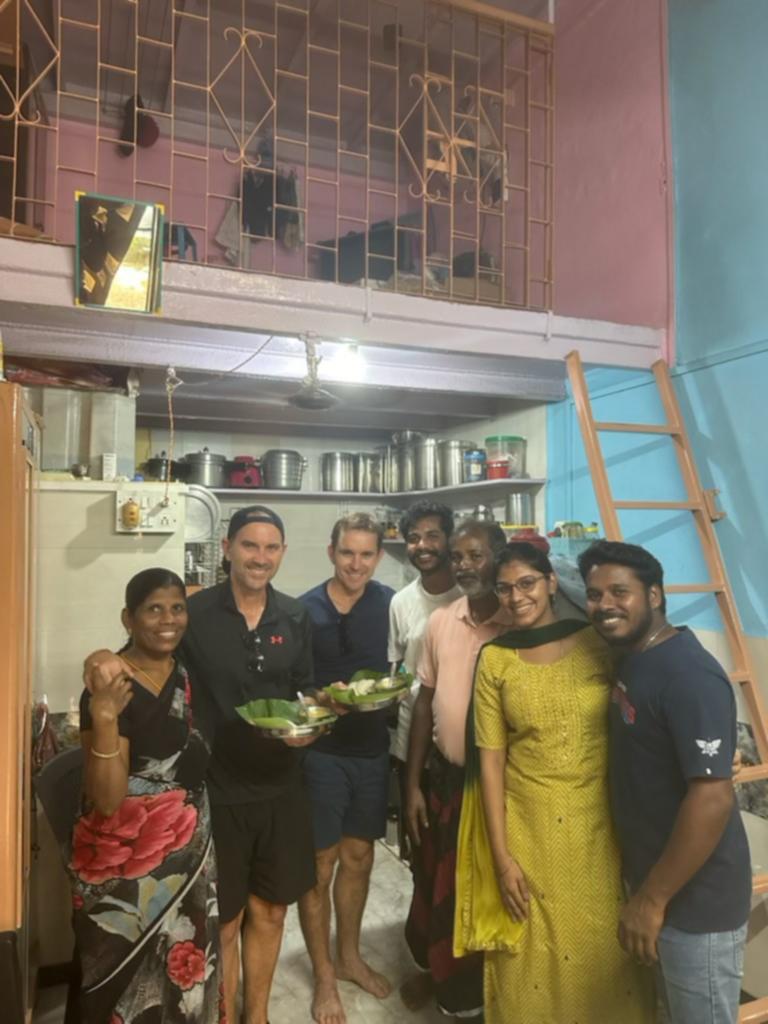
The six family members had one shelf each for their clothes.
When I asked RC where they all slept, he simply said, “Dad sleeps there”, pointing to the bed, “my sister and her husband sleep up there, and my brother, Mum and I sleep here on the floor”.
So small was the area, that they must literally sleep shoulder-to-shoulder on the tiles beneath our feet.
Inconceivable as this life was to us, RC’s mum, who had never seen a foreigner in her life, and who spoke no English, prepared us breakfast on her stove.
Rice cakes with a curry sauce, the family’s staple breakfast, were served up on small plates.
At first, my brother, Jono, and I looked at each other in fear as the last thing we needed was “Delhi belly” before we flew home, but there was such gracious warmth in the act of serving us that we tucked into what turned out to be another delicious Indian meal.
During our breakfast, RC translated our conversations, and his family smiled, laughed, and made us feel so welcome. Their pride at having us in their home was tangible.
All six of them were dressed neatly, and when it came time for photos RC’s parents put their arms around us and made us feel the same love we feel with our own family.
When it came time to leave, RC took us to a small Christian temple, where we lit a candle to say a prayer.
This he told me was an important tradition for his people and he was so happy when we obliged.
As we walked back to the car, Jono and I remained silent for most of the short trek until I said: “I am not sure how this is going to sound little brother, but there seems to be a peace, simplicity and freedom in what we have just seen.”
He just smiled and nodded.
After a life of living what I would now define as extreme luxury, I was humbled like never before seeing how other human beings live their day-to-day lives.
Mother Teresa, the “Saint of the Slums”, once said in an interview: “The world today is upside down, and is suffering so much because there is so very little love in the homes and in family life.”
What struck me about our visit to RC’s house was that while they seemed to have nothing, they also had everything they really needed to be happy.
Family and friends — call me simple — but these are pretty much the remedies for happiness, regardless of all the other stuff.
